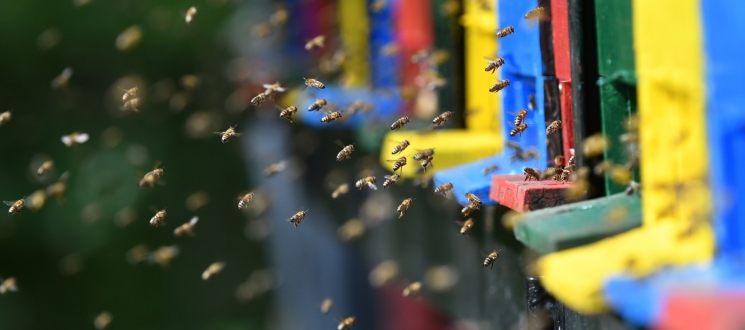The Authority participates in the work of various field-based working groups and networks, actively participating in sectoral discussions. Knowledge and experience are shared with competition agencies and sector regulators of various countries in the form of bilateral cooperation, but most of the international cooperation is achieved via respective cooperation networks and organisations.
The European Competition Network (ECN) is the forum for cooperation between the European Commission’s Directorate General for Competition and the national competition authorities. As all the members of the network apply the European competition rules, it is necessary for the competition authorities to pool their experiences and share best practices in order to ensure the effective and consistent application of these rules.
European Competition Authorities (ECA) is a forum of discussion for the competition authorities in the EU Member States, European Commission and the EFTA States to discuss competition-related problems and share experiences.
OECD Competition Committee is a committee of the Organisation for Economic Cooperation and Development, focusing on competition issues in the area that includes all 35 members of the organisation.
International Competition Network (ICN) is a global network with members from every region in the world ranging from small agencies to large ones with different resources and capabilities. The network is an informal venue, and it is mostly addressed to maintain contacts and create convergence towards sound competition policy principles and application thereof.
Agency for the Cooperation of Energy Regulators (ACER) has the objective of centrally furthering the process of harmonising EU network and market regulation with the aim of increasing competition. The Agency coordinates regional and trans-regional initiatives promoting market integration. It monitors the work of the European Network of Transmission System Operators for Electricity and the European Network of Transmission System Operators for Gas, in particular their EU-wide network development plans.
Council of European Energy Regulators (CEER) was established for the cooperation of the independent energy regulators of Europe. The Council seeks to facilitate the creation of a single, competitive, efficient, and sustainable EU internal energy market.
Energy Regulators Regional Association (ERRA) is a voluntary organisation comprising 37 independent energy regulatory bodies primarily from the Central European and Eurasian region, but also the United States of America, Cameroon, and ECOWAS, the association of state regulatory bodies of Africa. ERRA was founded in 2000 with the objective of exchanging information among energy regulatory bodies.
The aim of the OECD Network of Economic Regulators is to share experiences and good practices in different sectors of economic regulation but to also compare the efficiency and independence of regulatory bodies.
The objective of Regional Gas Market Coordination Group is to facilitate an effectively functioning common regional gas market in the Baltic States and Finland. The aim of the regulatory bodies is to develop a unified pricing scheme based on input-output points.
European Water Regulator (WAREG) was established under the leadership of 12 European water regulatory or development organisations. The WAREG working group on regulation is looking at the implementation of benchmarking in the water regulation of different countries, and the institutional working group is addressing the issue of affordability of water services.
The Independent Regulators’ Group-Rail (IRG-Rail) is a group of independent national rail regulators made up of representatives from 29 countries. IRG-Rail is working on changes to the legislation planned by the European Commission and makes the necessary addition or amendment proposals.
The European Network of Rail Regulatory Bodies (ENRRB) is an institution set up by the European Commission to bring together national rail regulatory bodies and it includes representatives from the 26 Member States of the European Union. The main task of the ENRRB is to assist the European Commission in the preparation of delegated acts, to facilitate active cooperation and exchange of information between national rail regulatory bodies.
The European Regulators Group for Postal Services (ERGP) has 28 EU Member States as its members. The role of the ERGP is to advise the European Commission on postal services and to promote cooperation and communication between the Member States and the European Commission.
The role of the European Committee of Postal Regulation (CERP) is to examine postal regulation issues in a European context, while also considering regulatory changes. CERP also assesses the impact of international regulation on countries and liaises with relevant international postal regulatory organisations.
European Working Groups of the Universal Postal Union (UPU). UPU is the main form of cooperation between the parties in the postal sector. The UPU also acts as an advisor and contact point, providing technical support as needed. UPU establishes rules for international correspondence and makes recommendations to promote the growth of letter, parcel, and financial services and to improve the service quality for users.
The Competition Authority cooperates most closely with colleagues from neighbouring countries. Annual meetings are held with Latvian, Lithuanian, and Finnish colleagues from the corresponding competition authorities as well as energy and postal regulators.
In addition to external cooperation, the promotion of national cooperation is equally important. This applies to public sector bodies as well as to business operators and business associations.
Due to the emergency situation caused by the pandemic, 2020 required some adjustment in terms of external relations. Thus, the Competition Authority also organised traditional international electricity and gas market forums virtually.
